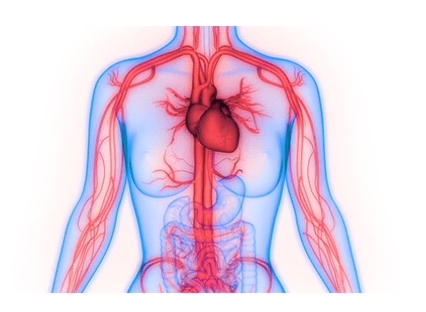
Feeling Faint

Fainting, often known as passing out, is a scary experience. It is, nevertheless, a regular occurrence. One out of every three persons will pass out at some time throughout their lives.
Within a few minutes, the individual normally regains consciousness, recovers fast, and returns to normal. However, fainting can occasionally indicate a significant medical problem, such as heart disease, therefore determining the cause of the occurrence is critical.
Fainting Symptoms and Causes
When one's blood pressure drops suddenly, blood supply to the brain is reduced, resulting in fainting.
Blood pressure can be affected by a variety of factors, including rapid changes in posture (such as changing from laying down to standing), dehydration, and some drugs. Dizziness, lightheadedness, and nausea are all symptoms of fainting. Some people pass out because their carotid artery (the artery in the neck) has been quickly constricted by rapidly tilting their head or wearing a too-tight collar. Fainting can also be caused by straining to have a bowel movement or even urinating.
Hypoglycemia, or low blood sugar, can induce fainting, which is most frequent among diabetics due to variable insulin levels. Dehydration can also make you faint, especially if you're elderly. Certain drugs, such as antidepressants,
Alcohol, as well as diuretics, cardiac medicines, psychiatric meds, antihistamines, and opioids, might cause a fainting episode.
When Does Fainting Indicate Heart Disease?
Certain significant cardiac disorders can produce fainting, albeit this is a rare occurrence. According to Oghenrukevwe Odiete, MD, a cardiologist at PeachState Advanced Cardiac & Endovascular in Newnan, GA., the most common heart-related causes for fainting are problems with the heart's electrical system, which can result in a too-slow heartbeat, known as bradycardia, or a too-fast heartbeat, known as tachycardia. An enlarged, weakening heart, a rip in the aorta, or damage to the heart muscle following a heart attack are some of the less frequent heart-related reasons of fainting.
Fainting might also be a symptom of a valve problem. Your heart has four valves, each of which must open and close properly in order for blood to flow freely through it. If a valve malfunctions, your body, especially your brain, may not obtain sufficiently oxygenated blood, resulting in fainting, according to Dr. Odiete. Aortic stenosis, or the stiffening of the aortic valve, your heart's main channel, is the most prevalent valve condition that causes fainting. The problem commonly develops as people get older.
If you pass out, what should you do? "The basic line is that if your doctor can't come up with a reason why you fainted, or if it's not a benign one, like you were overdoing it in the heat or you became sick when getting blood drawn, you should visit a cardiologist, this is what is assess for at PACE," Odiete adds.
We are just a call or click away. To learn more, book an appointment online or over the phone with PeachState Advanced Cardiac & Endovascular. We have several locations in Georgia: Newnan, Atlanta, & Griffin.
You Might Also Enjoy...


Can leg cramps be a sign of something serious?

Meet Dr. Odiete - PACE Cardiovascular Specilaist

Keeping your Vascular System Healthy

It is time to see a Doctor about your veins


